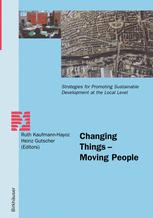

Most ebook files are in PDF format, so you can easily read them using various software such as Foxit Reader or directly on the Google Chrome browser.
Some ebook files are released by publishers in other formats such as .awz, .mobi, .epub, .fb2, etc. You may need to install specific software to read these formats on mobile/PC, such as Calibre.
Please read the tutorial at this link: https://ebookbell.com/faq
We offer FREE conversion to the popular formats you request; however, this may take some time. Therefore, right after payment, please email us, and we will try to provide the service as quickly as possible.
For some exceptional file formats or broken links (if any), please refrain from opening any disputes. Instead, email us first, and we will try to assist within a maximum of 6 hours.
EbookBell Team

4.8
104 reviewsThis book results from a pioneering effort to organize a productive interdisciplinary research program on sustainable development policy in a small country not previously recognized as a world leader in environmental social science. The results are very promising, considering the short time frame and the high barriers to success for such an enterprise - differences in concepts and terminology, disciplinary myopia, and the inherent difficulty of the problem. In the USA, where I work, these barriers continue to pose major challenges after some 30 years of effort. Switzerland has made noteworthy progress in only five. I hope this book represents the beginning of a long term effort at problem-oriented interdisciplinary collaboration among Swiss researchers and prac titioners. The Swiss group has succeeded in developing a unifying framework that makes a major contri bution to environmental policy analysis. The framework broadens policy thinking by giving se rious treatment to underutilized strategies that rely on communication and informal influence as well as to well-studied ones that rely on technological change, regulation, and economic forces. This broad typology makes it easier for an analyst to escape the tendency to presume that the po licy instrument currently in fashion, whether it be market-based instruments, voluntary measures, or whatever, is the right strategy for all problems. It also encourages discipline-based analysts to consider how their favored strategies might be combined with other strategies less familiar to them, and thus to craft strategies that can take advantage of the strengths of various policy instruments.